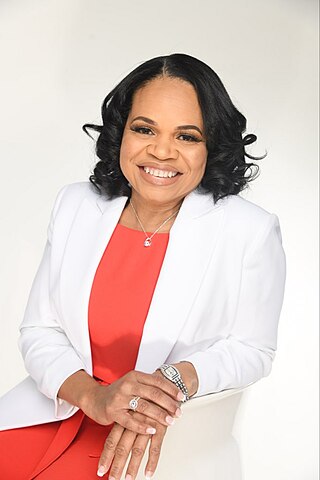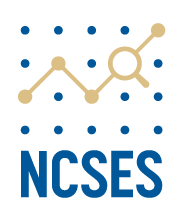
The National Science Foundation (NSF) is an independent agency of the United States federal government that supports fundamental research and education in all the non-medical fields of science and engineering. Its medical counterpart is the National Institutes of Health. With an annual budget of about $8.3 billion, the NSF funds approximately 25% of all federally supported basic research conducted by the United States' colleges and universities. In some fields, such as mathematics, computer science, economics, and the social sciences, the NSF is the major source of federal backing.

Donna J. Nelson is an American chemist and professor of chemistry at the University of Oklahoma. Nelson specializes in organic chemistry, which she both researches and teaches. Nelson served as a science advisor to the AMC television show Breaking Bad. She was the 2016 President of the American Chemical Society (ACS) with her presidential activities focusing on and guided by communities in chemistry. Nelson's research focused on five primary topics, generally categorized in two areas, Scientific Research and America's Scientific Readiness. Within Scientific Research, Nelson's topics have been on mechanistic patterns in alkene addition reactions and on Single-Walled Carbon Nanotube (SWCNT) functionalization and analysis, yielding the first COSY NMR spectrum of covalently functionalized SWCNTs in solution. Under America's Scientific Readiness, she focuses on science education and impacting science by considering its communities; this includes classroom innovations and correcting organic chemistry textbook inaccuracies, on ethnic and gender diversity among highly ranked science departments of research universities, and on improving the image and presentation of science and scientists to the public.

Pramod P. Khargonekar is the Vice Chancellor for Research and Distinguished Professor of Electrical Engineering and Computer Science at the University of California, Irvine. An expert in control systems engineering, Dr. Khargonekar has served in a variety of administrative roles in academia and federal funding agencies. Most recently, he served as Assistant Director for Engineering at the National Science Foundation (2013-2016), and as Deputy Director for Technology at the Advanced Research Projects Agency – Energy. From 2001 through 2009 he was the Dean of the College of Engineering at the University of Florida.
Beyond Bias and Barriers: Fulfilling the Potential of Women in Academic Science and Engineering (ISBN 0309100429) is a major report about the status of women in science from the United States National Academy of Sciences. Published in 2006, the report closely examines the data, proposed explanations, and possible responses to the relative dearth of women in science and engineering higher education in the United States.

Carlos Castillo-Chavez is a Mexican-American mathematician who was Regents Professor and Joaquín Bustoz Jr. Professor of Mathematical Biology at Arizona State University. Castillo-Chavez was founder and the Executive Director of the Mathematical and Theoretical Biology Institute (MTBI) and the Institute for Strengthening the Understanding of Mathematics and Science. For 2019, Castillo-Chavez was Provost Visiting Professor in the Applied Mathematics Division and Data Science Initiative at Brown University. Castillo-Chavez retired from Arizona State University at the end of spring 2020.

Subra Suresh is an Indian-born American bioengineer, materials scientist, and academic. On 1 January 2018, he was inaugurated as the fourth President of Singapore's Nanyang Technological University (NTU), where he is also the inaugural Distinguished University Professor. Subra Suresh plans on stepping down from his role as the President of NTU at the end of 2022. He was the Vannevar Bush Professor of Engineering at the Massachusetts Institute of Technology (MIT), and Dean of the School of Engineering at MIT from 2007 to 2010 before being appointed as Director of the National Science Foundation (NSF) by Barack Obama, where he served from 2010 to 2013. He was the president of Carnegie Mellon University (CMU) from 2013 to 2017.

Sexism in academia refers to the discrimination and subordination of a particular sex or gender academic institutions, particularly universities, due to the ideologies, practices, and reinforcements that privilege one sex or gender over another. Sexism in academia is not limited to but primarily affects women who are denied the professional achievements awarded to men in their respective fields such as positions, tenure and awards. Sexism in academia encompasses institutionalized and cultural sexist ideologies; it is not limited to the admission process and the under-representation of women in the sciences but also includes the lack of women represented in college course materials and the denial of tenure, positions and awards that are generally accorded to men.
African-American women in computer science were among early pioneers in computing in the United States, and there are notable African-American women working in computer science.
The STEM pipeline is the educational pathway for students in the fields of science, technology, engineering, and mathematics (STEM). The start and end of this STEM pipeline are disputed, but it is often considered to begin in early education and extend into graduation or an adult career in STEM.

Ashanti Johnson is an American geochemist and chemical oceanographer. She is the first African American to earn a doctoral degree in oceanography from Texas A&M University.

Diversity in computing refers to the representation and inclusion of underrepresented groups, such as women, people of color, individuals with disabilities, and LGBTQ+ individuals, in the field of computing. The computing sector, like other STEM fields, lacks diversity in the United States.

The Center for Minorities and People with Disabilities in Information Technology (CMD-IT) is an American 501(c)(3), non-profit organization of public and private agencies, corporations, and institutions that focuses on supporting the development of an information technology workforce strong in underrepresented groups including African Americans, Native Americans, Hispanics, and People with disabilities. CMD-IT works with key advisors in the IT field and is responsible for the Underrepresented Women in Computing Committee at the annual Grace Hopper Celebration of Women in Computing, one of the world's largest gatherings of Women in Technology.
An underrepresented group describes a subset of a population that holds a smaller percentage within a significant subgroup than the subset holds in the general population. Specific characteristics of an underrepresented group vary depending on the subgroup being considered.

Ahmed H. Tewfik is an Egyptian-American electrical engineer, professor and college administrator who currently serves as the IEEE Signal Processing Society President. He also holds the Cockrell Family Chair in Engineering #1 at UT Austin. He served as the former chair of the Department of Electrical and Computer Engineering at the Cockrell School of Engineering at the University of Texas at Austin from 2010 to 2019. For his research and contributions to the field of Signal Processing he was elected as an IEEE Fellow in 1996, received the IEEE Third Millennium Award in 2000, and awarded the 2017 IEEE Signal Processing Society Technical Achievement Award.

Monica Farmer Cox is a professor of engineering education at Ohio State University. Cox was the first African-American woman to earn tenure in engineering at Purdue University. She won the 2008 Presidential Early Career Award for Scientists and Engineers.

Brandeis Marshall is an American data scientist, CEO of DataedX, and Full Professor of Computer Science at Spelman College, where she is the former Chair of the Department of Computer and Information Sciences. Starting in September 2019, Marshall is a faculty associate at Berkman Klein Center for Internet & Society at Harvard University. She has also worked to broaden participation in the field of data science to increase representation of underrepresented minorities, including her effort 'Black Women in Data'.
Nina Matheny Roscher (1938—2001) was an American chemist and advocate for women and minorities in science. She also researched the history of women in chemistry, publishing the book Women Chemists (1995). She served as professor and chair of the chemistry department at American University in Washington, D.C. She received the ACS Award for Encouraging Women into Careers in the Chemical Sciences (1996) and the Presidential Award for Excellence in Science, Mathematics and Engineering Mentoring (1998).
Mark Edwin Lewis is an American industrial engineer and professor at Cornell University. He was the first African-American faculty member hired in Industrial Engineering at University of Michigan and the first tenured African-American faculty member at the School of Operations Research and Information Engineering at Cornell University. Lewis' research is focused on stochastic processes, and queueing theory and Markov decision processes in particular.

The National Center for Science and Engineering Statistics (NCSES) is one of the thirteen principal statistical agencies of the United States and is tasked with providing objective data on the status of the science and engineering enterprise in the U.S. and other countries. NCSES sponsors or co-sponsors data collection on 15 surveys and produces two key publications: Science and Engineering Indicators, and Women, Minorities, and Persons with Disabilities in Science and Engineering. Though policy-neutral, the data and reports produced by NCSES are used by policymakers when making policy decisions regarding STEM education and research funding in the U.S.
According to the National Science Foundation (NSF), women and racial minorities are underrepresented in science, technology, engineering, and mathematics (STEM). Scholars, governments, and scientific organizations from around the world have noted a variety of explanations contributing to this lack of racial diversity, including higher levels of discrimination, implicit bias, microaggressions, chilly climate, lack of role models and mentors, and less academic preparation.












